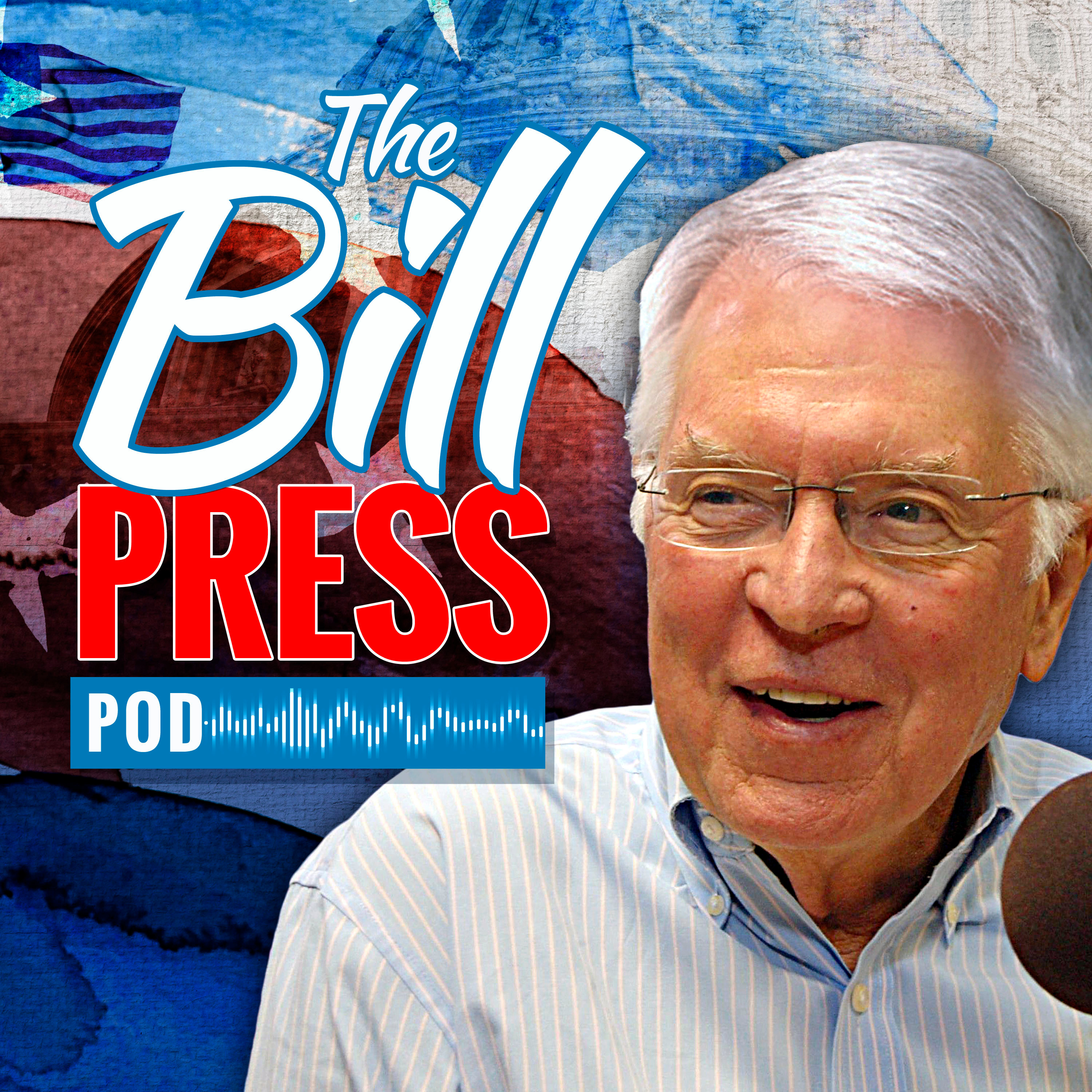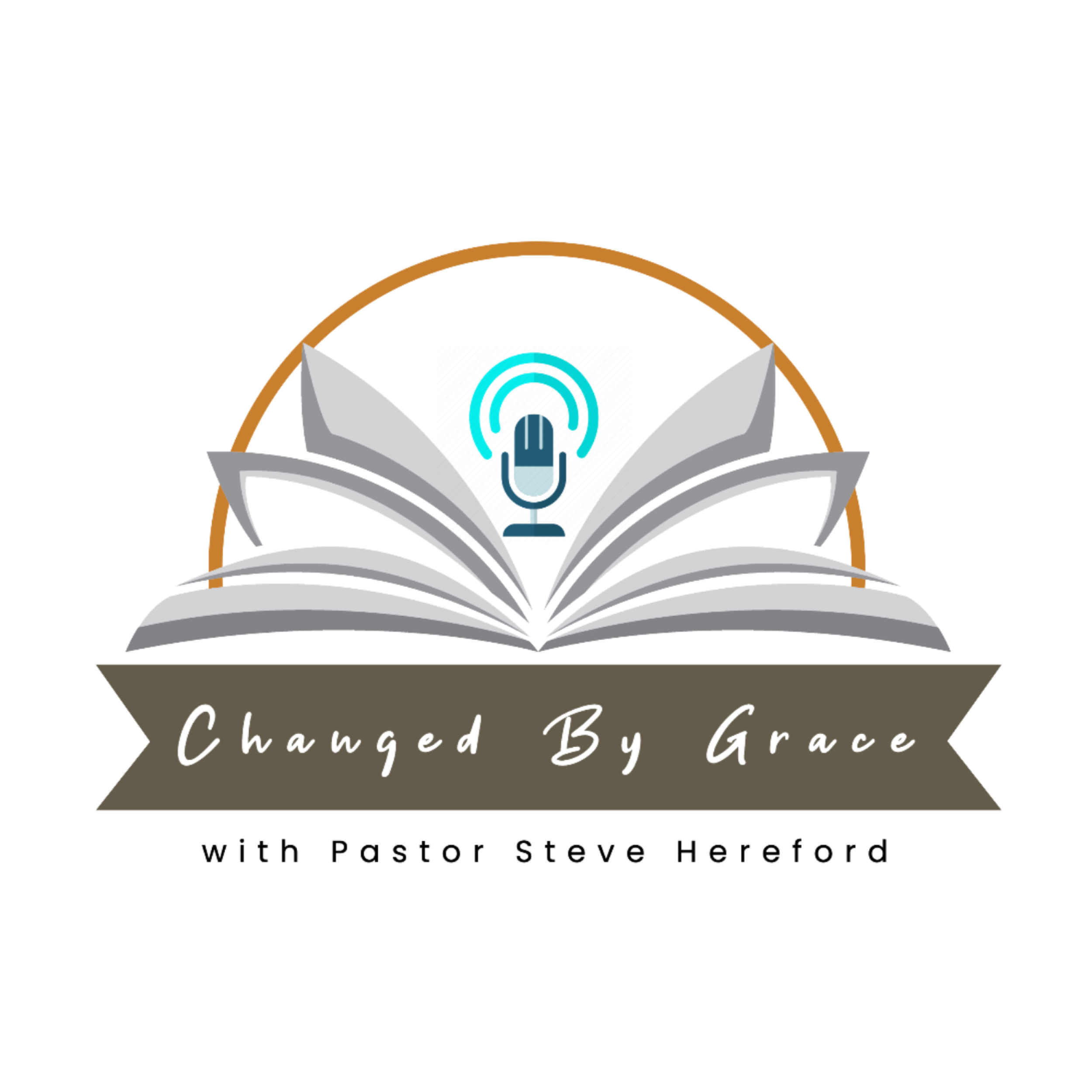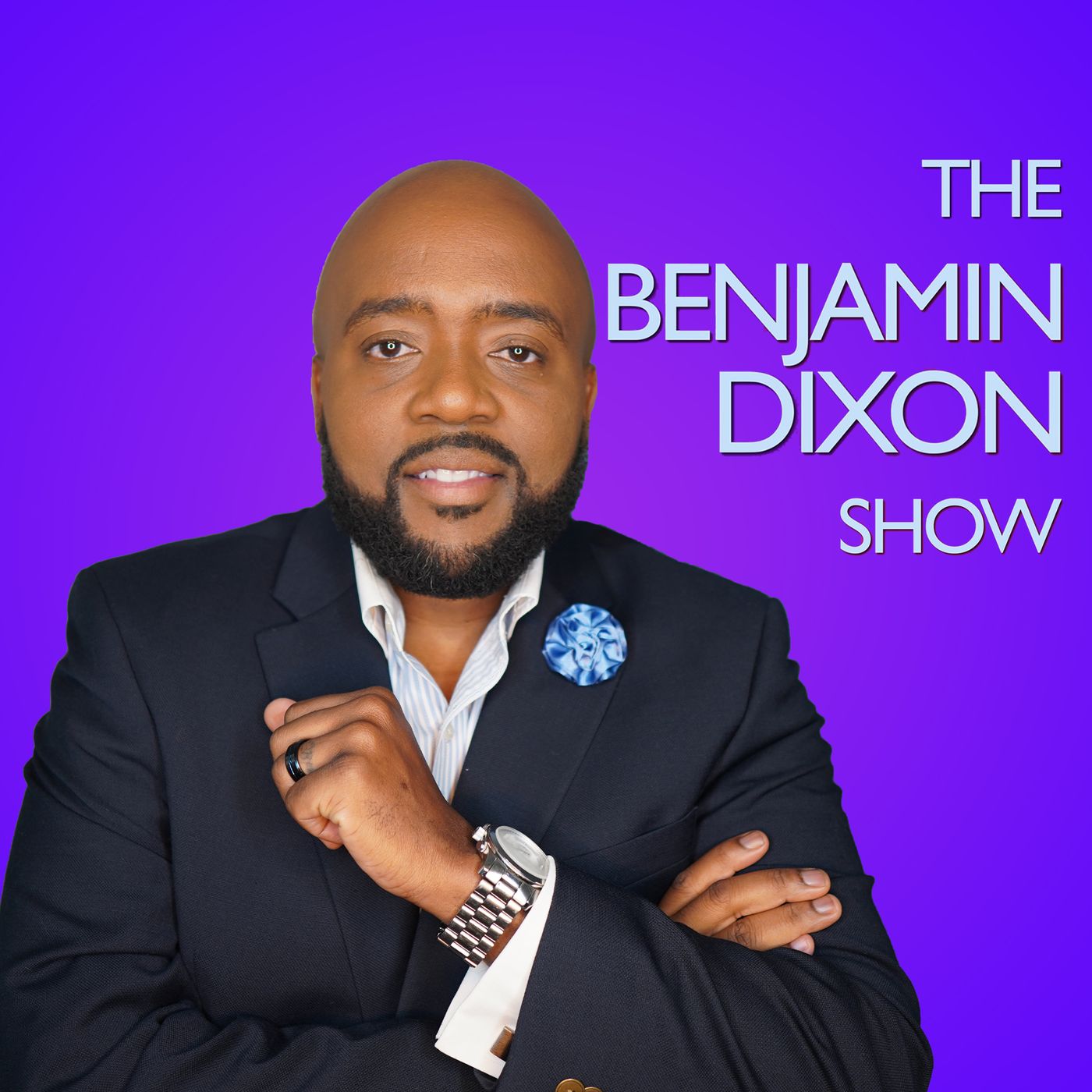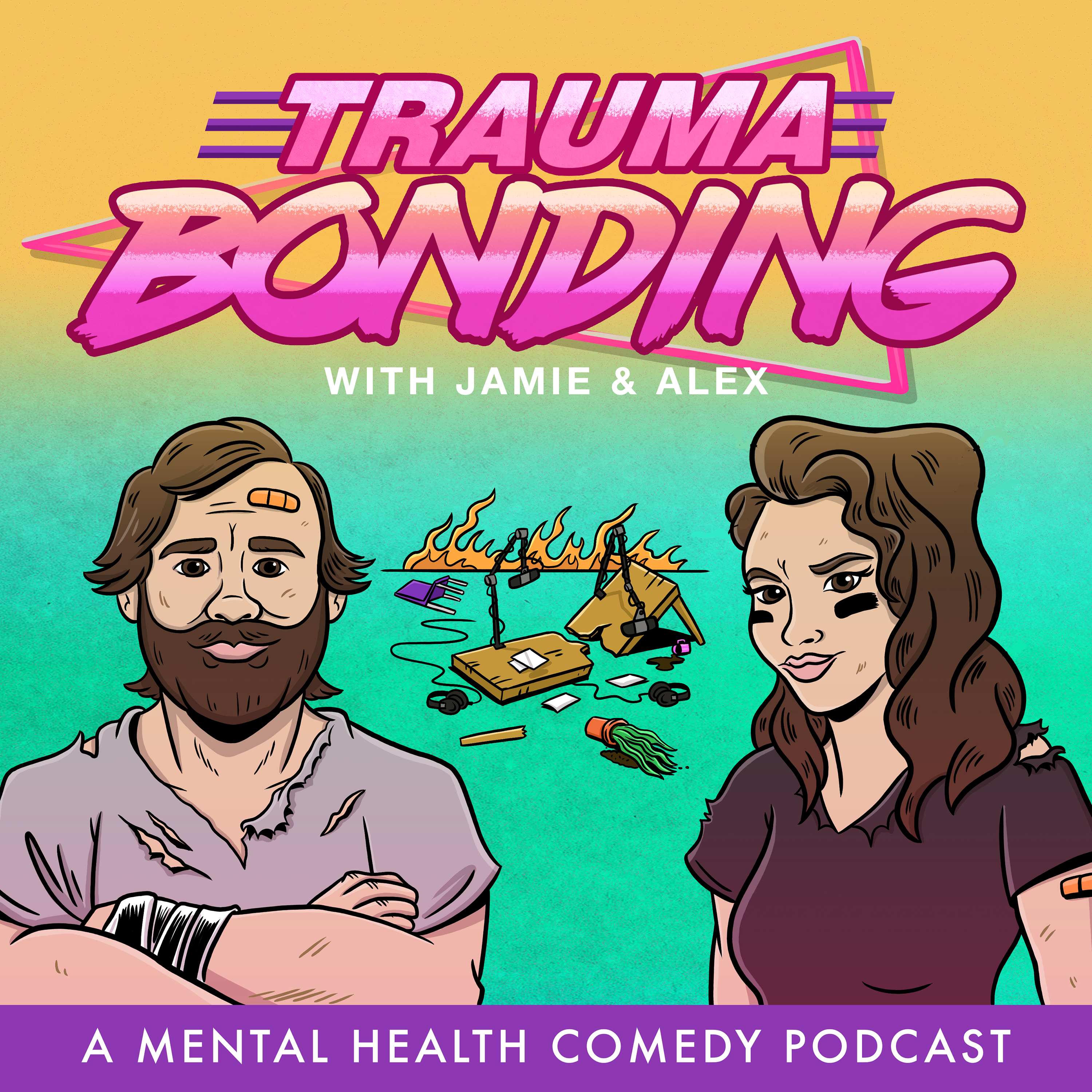
The Darrell McClain show
Independent media that won't reinforce tribalism. We have one Planet; nobody's leaving so let’s reason together!! Darrell McClain is a Military veteran with an abnormal interest in politics, economics, religion, philosophy, science, and literature. He's the author of Faith and the Ballot: A Christian's Guide to Voting, Unity, and Witness in Divided Times. He was born and raised in Jacksonville FL, and went to Edward H white High School,l where he wrestled under Coach Jermy Smith and The Late Brian Gilbert. He was a team wrestling captain, District champion, and an NHSCA All-American in freestyle Wrestling. He received a wrestling scholarship from Waldorf University in Forest City, Iowa. After a short period, he decided he no longer wanted to cut weight, effectively ending his college wrestling journey. Darrell McClain is an Ordained Pastor under the Universal Life Church and is still in good standing as well as a Minister for the American Marrige Ministries . He's a Believer in The Doctrines of Grace, Also Known as Calvinism. He joined the United States Navy in 2008 and was A Master at Arms (military police officer) He was awarded several awards while on active duty, including an expeditionary combat medal, a Global War on Terror medal, a National Defense Medal, a Korean Defense Medal, and multiple Navy achievement medals. While In the Navy, he was also the assistant wrestling coach at Robert E Lee High School. He's a Black Belt in Brazilian Jiu-Jitsu under 6th-degree black belt Gustavo Machado, Darrell Trains At Gustavo Machado Norfolk under the 4th-degree black belt, and Former Marine Professor Mark Sausser. He went to school for psychology at American Military University and for criminal justice at ECPI University.
The Darrell McClain show
Holding Pastors to Higher Standards: Navigating Expectations, Accountability, and Spiritual Leadership
Should pastors and overseers be held to higher standards than their congregants? This episode unpacks the complex and often controversial expectations placed on spiritual leaders. We scrutinize the commercialization of modern churches, with figures like Joel Osteen and TD Jakes under the spotlight. While some argue that these high-profile pastors prioritize wealth over faith, others believe that both leaders and followers share the duty of upholding Christian values. By dissecting these differing perspectives, we invite you to reconsider how personal failings and public perceptions impact the community's spiritual journey.
We also dive into the dual role of pastors as both spiritual leaders and public figures, akin to athletes or celebrities. The conversation touches on the inevitable disappointment that follows when these admired figures falter, challenging us to question why congregants often fail to emulate positive examples set by these leaders. Through personal anecdotes and broader societal observations, we explore the intricate balance between individual accountability and the influence of those in the limelight, offering insights into how these dynamics shape community values and behaviors.
Finally, we turn our attention to the importance of a direct connection with God, akin to bypassing middlemen in business transactions. While pastors can guide and inspire, they are not the ultimate source of spiritual sustenance. We emphasize the value of diverse role models, including family members who embody godly behavior, and consider why faith often thrives in resource-limited environments. Join us as we reflect on how personal choices, rather than just pastoral influence, play a pivotal role in shaping one's spiritual and moral compass, urging listeners to embrace the role of pastors as theologians dedicated to guiding their communities with depth and insight.
So, basically, we were having a conversation about pastors and overseers and are they held to a higher standard, so everybody had their different opinions on it. So we're all going to come together Most of the people you're familiar with from the last episode and everybody else can introduce themselves as they feel. We're going to start off with the returning champion, juman. What was your take on this specific issue?
Speaker 2:I missed the question, my bad.
Speaker 1:Just say whatever you want to say about the topic the overseers or pastors or whatever being held to higher standards.
Speaker 2:Oh, pastors being held to higher standards. I was like oh yeah, I think pastors are held to a higher standard than regular civilians or people in their congregation. That's what was it from that last night? I don't know what happened with Jalen when I got off the phone.
Speaker 1:When we were talking yesterday, what were your core arguments?
Speaker 2:I think the argument kind of got its way because I was more still talking about all corrupt pastors and argument kind of got its way because I was more talking about all corrupt pastors than we kind of started talking about our cousins. My thing is like I say pastors are really the reason that people don't go to church. That's my core of my argument that pastors are the reason that people don't go to church today, because pastors are really out for the money. It's all about a money grab. Like look at Kirk Franklin, look at Joel Osteen, look at TD Jakes Like it's not the same, no more. Church is not the same, no more. They got Starbucks in the church. Church they use an iPad, don't even use a Bible. No more. They got Starbucks in their church. Church they use an iPad, don't even use a Bible. No more. It's just to me church ain't the same. What I grew up to know, the church to be.
Speaker 1:Anybody have a rebuttal or a difference of opinion?
Speaker 2:Yeah, I got a rebuttal and a difference of opinion. First I want to say doing a good job, darrell. You're like Walter Cronkite, 10 o'clock at night doing this podcast. I appreciate it. My name's Steve Sapp and I got a different opinion on that. First thing I want to say is if anybody doing something wrong, especially somebody in ministry, they wrong. If it's stealing money, if it's drinking, smoking or whatever it is, I want to be the first one to say it's wrong. But if you see a pastor somewhere drinking and you're doing the same thing, you're wrong too. So you got to have a whole accountability for yourself, because a pastor is only one man. You got some. Some congregations have 50 people, some of them have thousands, and you can't point the finger at this one man. So if you're a Christian, you held to the same. You have the same walk.
Speaker 2:You also is a servant. So you also got to go out in the world and show that you's a Christian. You also have to represent Christ. Even though you're not a pastor, you still have to be a representative of Christ. So I'm gonna take about another 20 seconds so you can take that same pastor and you can say well, he corrupted the congregation because he's sleeping with women or he's drinking or he's smoking.
Speaker 2:But you can take a pastor that don't do any of that. He could be a married man, he can work in a community, he can give, he can be a good man, but how come that don't rub off on the congregation? I mean, 65 of all congregations are single. 90 of them are married. So how come marriage don't rub off on the congregation? So what? What we're saying? Just something bad. Don't rub off. That the pastor do. If he drinking somebody can see him drinking. Oh, that's gonna turn me away from church. But this man sitting up here, married, taking care of his family, but you ain't getting married. You want to run around and have babies and sleep with different women. How come the good stuff don't rub off, but the bad stuff rub off?
Speaker 2:I think you're looking at it from a different view, though, than what we are actually talking about, because you're looking at it from a different view of a whole point of a pastor. We're looking at it from a perspective of a corrupt pastor, because that's what it is, and I think you're looking at it totally different than what it actually is on the surface of what we're talking about for real actually is on the surface of what we're talking about for real, because, like I said, you could say why they don't listen to the righteous pastor, but again, that's the choice of the congregation, but the obligation of the pastor is to be the pastor and uphold that title. Whatever it is, the title of the pastor don't change, no matter who in the congregation. The pastor still supposed to be the pastor at the end of the day, and you gotta uphold that duty because you wasn't like it's not like a king and a king, a queen and a prince, and all of that where you appointed your wife and you appointed to be the next king, and all of that.
Speaker 2:You chose to be a pastor. You took that oath to god to be the next king, and all that. You chose to be a pastor. You took that oath to God to be the pastor and to serve and to live the most righteous life you can. But you know you're not living the righteous life. When you continue to go out on a Saturday night and you come in the pulpit and sweat tequila out on a Sunday, you can say, okay, what about you If you're drinking and smoking? Now, okay, I can drink, I can smoke. I'm a reckless civilian, I don't got no obligation that. I have no oath that I'm taking to God to serve him and his people. I don't go out and try to preach to the pastor and people every day he do. You can't tell me it's okay for somebody to go out and do whatever they do whatever they smoke, drink, pop pills, whatever do women, whatever it is and then come in the pulpit the next day and try to deliver lives. It's just not right. It'll never be right.
Speaker 1:So your critique is not a thing that individual aid does, it's more of a position that individual A does. So would the pastor be?
Speaker 2:just. It's more so the title that individual A holds, like the president, held to a different standard the mayor, the governor. It's more the title than the person.
Speaker 1:So, before I say what I kind of think, which I can see where you're coming from, Josh, do you have an opinion on it? Well, I think they both kind of think which I can see where you're coming from, Josh.
Speaker 2:Do you have an opinion on it? Well, I think they both kind of I understand where they're both coming from on that, but I do. I'm leaning more towards If they're. Regardless of whether or not he's a pastor or not, no one's perfect. He's making the effort to be as good as he can, while trying to lead as many souls the right direction as he can. I think that was a good point. I think that was a good point my dad had just made about. Why can you only follow the negative things?
Speaker 1:I think that was a good point. I want to ask a question to everybody. We can start back with Jermon. What is, in your view, the role of a pastor, or do you think you already addressed that?
Speaker 2:I think the role of a pastor is to be the face of the community, a community leader.
Speaker 1:Okay, Steve, what do you think?
Speaker 2:It's like the analogy I gave about this yesterday was like being a pro athlete. A bunch of pro athletes say man, I don't want to be a role model to kids. That's not what I'm here for. I'm just here to play football, I'm just here to play basketball. But every day you step on that court, or every day you step on that field, somebody looking up to you whether you like it or not. So you've got an image to uphold with your job title. Whatever job title you take if it's the president, if it's the government, if it's a pro athlete, if it's a celebrity look how people look, how people look at people disappointed in people.
Speaker 2:and he did it because they looked up to diddy they thought then it was a mogul, they thought then it was a black icon. So to see a black icon and a black speaking fall like that, you like, damn, like it ain't no hope for it. So when you see your pastor, that's supposed to be the symbol of god in the community, the symbol of righteousness in the community. When you see him out with all the hood niggas and all the hood hoes, smoking, drinking, doing whatever he do and partaking of continuously time, it ain't like he did it for a period of time and then let go.
Speaker 2:When you continue to do everything, you're not like dibbing and dabbing and doing it. It's a consistent thing for you, that's a lifestyle for you and that can't be a lifestyle of a true pastor. To go party on a Saturday night and then you wake up and go in the pool pit and then while you sweat, and you sweat not tequila, because you've been out all night. So, uh, I'm saying you don't live a life of a regular person. It's like being a celebrity, like being a pro athlete, anything like that.
Speaker 1:So same question for steve.
Speaker 2:Oh yes, yes I didn't mean to cut you off.
Speaker 1:Oh, you can go ahead and say yeah, same question. I just kind of posed a question what was the role of a pastor? But you haven't said anything. So what?
Speaker 2:hey, let me go right quick and I'm gonna let you go right behind me, since diarrhea asking the question. Well, that's a false statement, that what Jemima just said, because the pastor is only one person. Let's take a TD Jakes you got 6,000, 7,000 members. You're one man and you're teaching all of these people to go out in the world to be good people. Td Jakes, maryy, y'all say what y'all want to say about some people say it is about it. Some people say that about it.
Speaker 2:What else? He's a married man and he do for the community. He help out when he can. He one of the biggest donors, the black colleges or whatever you, whatever organizations he can give to. He one of the biggest one that do it all right. So where is that rubbing off on the congregation? I mean, is the congregation getting married? Of course not every congregation. Of 65% of all congregations in Singapore, 91% of all pastors matter. So you can say a pastor, he out there smoking and drinking and being corrupt, but what about the pastors that are doing right and being married? Why somebody answer that question?
Speaker 2:But, we're not talking about them.
Speaker 5:We're talking about them in particular.
Speaker 2:Ain't. Nobody say nothing when you talk, man. Let me finish. So what we're talking about is we ain't talking about the ones that's corrupt or not corrupt, we're talking about pastors. Anybody can be corrupt or not. Some people can choose good or bad. We all can choose good or bad. Everybody on this podcast got the same 24 hours. The next man got. Everybody got a mirror and looked at it, and you can choose to do good or bad. And what I'm saying is why the pressure ain't on the members when the pastor's doing well? Why is the congregation not getting married? Why the congregation ain't going out into the world making it a better place?
Speaker 2:So you're going to put everything on one man and you got thousands of Christians out there. We need to be upholding ourselves. We need to look at ourselves and say hold on. Just because this one man right here went wrong, what are we going to do? It's accountability for the Christians. What are we're gonna be held accountable for? We can't just hold this one man accountable and hide behind our shell and do what we want to do and go out here, smoke and drink and not be married and make babies and do all these things right here and hide behind that and point at this man and say he supposed to be great.
Speaker 2:Who is we? We're all accountability-like.
Speaker 1:Yeah, I can definitely understand from both standpoints. Just from a personal thing, I could talk about something that happened two weeks ago. There's a pastor I've been following since I was 20 years old and his name was Steve Lawson. I read a lot of his books, been looking up to him for years. He was the president of the Masters Theological Seminary. He was the preacher of Dallas Revival Church and he had to step down he's 73 years old because he was having a relationship with a 20-something-year-old. The 20-something-year-old was obviously not his wife and even though um in in the community I said you know everything he said, he said in his books are still true. I can still affirm everything he believed. Apparently there was an underlying issue which was sex and not gay sex, just straight old heterosexual sex. That you know started to pull at him and he never even had sex with the, with the woman, but it was just an untoward relationship, you know, outside of his marriage, text messages and stuff like that.
Speaker 1:And I saw in that specific reform community the distress that people felt just because of the person that had fallen from, let's say, grace. The pastor of the church of the seminary he teaches at is 86, and he was supposed to retire. So everybody just assumed Steve Lawson was going to take over. So he had to resign from being the head of the church, he had to resign from being the head of the seminary and it caused a ripple effect. So I look at it like that one person doing that one thing did not take away from all the good things that he did, but I can admit that it still. It was painful it was. It was painful for everybody that doesn't like the reformed tradition, because I, you, they now had somebody to point at and say, oh it's just because this is what they teach. It was painful to all the students in the seminary because, you know, it's kind of a laughingstock if you're going to be have his name on your degree, and so I could understand how. You know not everybody in the seminary was doing anything and he had, as far as we know, a decent life up until then.
Speaker 1:But 50 something years of work is kind of held in. You know, like what do you do with it now? You know what I mean and I think when they say stuff about learning in reverse, that's kind of the way I think Like not every lesson that I'm going to learn is because somebody is doing the right thing, and I think when they say stuff about learning in reverse, that's kind of the way I think. Like not every lesson that I'm going to learn is because somebody is doing the right thing. A lesson I may learn is because somebody is doing something questionable. It may not even be quote, unquote wrong, but it may be questionable. You know what I mean, and so I look at it from that standpoint too. I think we all do have to hold ourselves accountable, but at the same time I think we're supposed to push each other but we're also supposed to encourage each other. That's just kind of my trying to think about it from every standpoint.
Speaker 2:I also think that your job title dictates some of your behavior. Because a lawyer has to act a certain way. Because a lawyer has to act a certain way, a police officer has to act a certain way, just like a preacher has to act a certain way. Your job title also dictates some of your behavior.
Speaker 1:Or it's supposed to.
Speaker 2:Supposed to? Yeah, definitely, I agree with that. I agree with that. Alright, we have somebody else that hasn't had a chance to speak. I agree with that.
Speaker 1:I agree with that. All right, we have somebody else that hasn't had a chance to speak, that has been observing for about 16 minutes.
Speaker 2:Yeah, I won't take too much of your time, man, I just want to, like I said, as Steve did, I want to congratulate you guys on a successful podcast and having such an interesting topic. That's on the tongues of a lot of people and on the minds of a lot of people throughout the nation with all that's going on. But what we have to realize is, first thing, you have to understand if you are, if you are a believer in the Lord Jesus Christ and then in the Lord, it's a personal relationship. It's not, it's not about what somebody else believes or how much they believe. The pastor is the word. That's the job of path. Take description and he breaks the scripture down in a way to where the common person can identify with it and relate that scripture to their lives.
Speaker 2:First thing I want is that you're absolutely right. The pastor should not be in a position to where he can do what is in the Bible. You guys have heard of this term scattering the sheep. You're right. You're standing in the way of sinners when you do that, because you give them a life of sin. When they see you do it, they think it's all right and you just gave them a life. But I will say there is no Perfect person On this earth. I don't care what they tell you, I don't care what they want to. So did you Get to believe it? There is no Body that's perfect. From pastors to police, we all are going to have a human moment at any time. Know who are they talking about. You just so happen to catch him in his thing, in his weakness.
Speaker 2:But trust me, I've been around this thing a long time. Since I was 13 years old, I've been around the church and I've been looking behind the curtain. Steve would tell you. I've told him some unbelievable story and I'm here to tell y'all I'm not, I, I'm not only in, but nobody foolishness out there, because I know get no throughout the kids that everybody, we all got something that we need to act, god to forgive us. We all need deliverance from some. We're all fighting and struggling.
Speaker 2:Pastor, parishioner, it makes no difference who you are, we all are struggling and you know I was a TD Jakes man. I'm just gonna tell you straight up, man in the 90's, you know I was a TD Jakes man. I'm just going to tell you straight up, man in the 90s, you know I was TD Jakes. And still listen to a word if you got a word right now with what I know about. But I was a TD Jakes last year. But if I had not built up my own personal relationship with God and I had not gotten into that word for myself what just came out on Jakes, that would have turned me around from church. But I had to.
Speaker 2:It's just like this fellas and I'm going to shut up. What y'all have to understand is the pastor, the preacher, the bishop is the middle man. I'm going to speak street term to y'all. You guys got to go around him and go to the source. It's alright to go around him and go to the source, it's alright to listen to him, it's alright to get some encouraging words from him, but he is not the source, he's not your supplier. It's just like Frank. He said I don't want to buy from them, no more, I want to get it from where they get it from.
Speaker 2:And he went overseas and he started getting his dope from the Vietnamese people. Well, it's the same thing with God. You got to go to the store, man. You can't put all your faith in this dude that's up there every Sunday. He's struggling, just like you struggle and even more. But, cricket, can I ask you something? And so, todd, you just proved our whole point of what me and Jalen were saying, because what you said, we're not talking about the people like you that know God and been to church and everything. We're talking about the people that's trying to come to us. So what you just said, what happened to you, what you know about TD Jakes now. You would have known in the 90s you would have been turned on. That's the whole point I got it.
Speaker 1:That's the whole point. I got it. You just told the whole point right there. I got a whole point. I got a whole point. I got a. I got a. I got a. I got a, I got a.
Speaker 1:I got a question and and somewhat of an assertion and this is somewhat piggybacking on what Steve said earlier and this is something that I kind of think we all could say we all are in some sort of different Christian tradition. On the phone, I don't know, people are Baptists and Ammys and everything else. But what Steve said was what about the pastor? What about everybody else? And I'm thinking like the example of a man to me was not my pastor. I did not know my pastor. I know of him. I saw him on Wednesdays and Sundays. You know what I mean.
Speaker 1:My example of manhood was my grandfather, and he was not a celebrity. He was a man that went to church, he was an usher, he took care of his family, he was a corrections officer. He retired, he went and got a CNA certification. He worked and took care of his family. He was married to the day he died.
Speaker 1:I I can understand a pastor fallen, but that's not my only example in life. I watched my grandfather, as a godly man, do godly things, so I think it. I think it we. We have to really look at like it. Sometimes people are looking for an excuse to be foolish. You know what I mean. If you saw your pastor doing heroin, you just gonna do heroin tomorrow. No common sense is written in your brain and the law of God is written on your heart, and that's your pastor is not your only example. If that's the only example you cling to, you have to broaden your horizon. I used to tell people you have to learn how to dance in a circle of love so that one person falls down and you can keep dancing. You know what I mean, thank you.
Speaker 2:I appreciate that, darrell, and that's my whole point, and you just made the point that I'm making. I'm not never saying it's right for a pastor to do nothing wrong, and I'm not saying he ain't put on a different level than an average layman. But what.
Speaker 2:I'm saying is it's examples all around us. Everybody on this phone had an example of a good man, but you don't choose to go in the direction of that good man. My dad and your granddad was the same married to the day they died Christian people. We all had that example, everybody on this phone. So nobody can say you can point at this man is smoking and drinking and that's going to deteriorate you from going to church or that's going to hurt your salvation or nothing like that. Because when you have these wonderful um role models in your life, how come you don't clean that air?
Speaker 1:because well, but that's not totally true, though and I got the water what about people that don't know and everything else.
Speaker 2:Because the thing right, you escape the account of color. Give me. Give me 10 seconds people that don't know the they ain't escaping their argument is. We do have the example of the role model. I think their argument is the people, that don't the people that don't, yeah, exactly, but this is, but do you remember? People that don't only left out the examples that they got. Yeah, you can't say that. You saying that because you know who you know.
Speaker 1:Wait a minute.
Speaker 2:The. You didn't say that. You're saying that because you know who you know. Wait a minute. The people that don't know they left out the dry.
Speaker 1:They left out for the example that they got. Let me expand this conversation in this way Not something obscure, but something factual. There's places in the world where it is forbidden to be a Christian and there is no pastor and they have to funnel in Bibles and the examples they have are about two and three Bible verses. How come those people can sustain their faith? But Americans who are, who have access to everything, look for every reason to stumble.
Speaker 2:Let me answer that question directly. I'm going to answer that question and I'm going to answer the question they just asked about people that don't have an example, and people don't that don't know Christ and people don't that don't have role models in their life.
Speaker 2:This is what's going on right here. Everybody fall to the flesh and they own the gents. So it's very attractive. If you are already smoking and drinking, that's already your agenda. So if you see the pastor there, you'll say, oh, he's smoking and drinking. I may as well smoke and drink, but if that same person that don't know god, if it's three, it's, it's 300 000 churches in america. We very rarely hear about a pastor fall. We don't hear about a hundred thousand pastors smoking and drinking and doing something wrong. We might hear 10 or 20 out of 350,000. So what you get?
Speaker 2:you got over 300 and some thousand good men out there, just pastor in churches mm-hmm so that all these good examples we have and you talk about this guy that don't know God, then he got this good example right here in front of him. But what? Why he still fall. Because he want his own agenda. You don't want to be married, he want to run the street, he want to say, oh, he don't want that exam, that's an assumption though. Yeah okay, everything you just said is an assumption.
Speaker 1:Yeah, but you.
Speaker 2:Because you don't know what the person that don't know God don't know of what he's doing. So I got to he's trying to get his life on the straight path. And then he looked at somebody like this and now he left out the drive.
Speaker 1:I got to.
Speaker 2:You can edit from that point. You can't assume things. You, I got it. 50,000 churches in America I'm talking about these pastors that the Holy Spirit and preaching righteousness and living right and married, and this person don't know. If he go to this church, he looking at a good man that go your example right there, do it. He married, go, get married. He ain't going to get married. What are you going to do? He's going to sleep with more Muslim women as he could. Why? Because that's what feels good.
Speaker 1:But what if he goes to the other person's church?
Speaker 2:though? What if he don't go to that righteous church? See, this is Just stop cutting me off. But you're assuming. Let me finish. I'm not assuming, I'm telling you. I'm giving you facts. Because I'm giving you facts?
Speaker 2:Because it's harder to stick with one woman take care of your family, be right there. That's not the easy way to go. That's not the easy way to go to get married do what this preacher is doing. That's not easy. It's not easy to be in your household with your wife 25 years when one. It's very easy to run around the street with all kinds of different girls, that ain't hard to do. But but being a man getting up for work every day, taking care of your family, sticking with your wife, that that's not easy. That's the hard thing to do. So now you take people that don't want to have accountability, that they want to run around and do all these things. So it's easy to turn Donatello off the Ninja Turtle and go on your turtle shell and point your finger out at the pastor and say, look what he's doing right there. But I'm going to sit there and sit in this turtle shell right here and hide from everything that I'm doing. I'm all right because I ain't him.
Speaker 1:Let me hide. I'm going to hide from all of this stuff that I'm doing.
Speaker 2:I'm alright because I ain't him, let me. I'm going to hide from all of this stuff that I'm doing. So I'm going to sit right in this turtle shell where I'm at and for what I'm doing I'm going to say it's okay, because I'm going to point the finger at him because he is a pastor and he's doing wrong, but I'm doing. Yeah, like what part of that don't make sense to you, the pastor, don't live the same life ability that people don't want to take for themselves.
Speaker 2:But yeah, the pastor is supposed to be God, the symbol of God in the community. Yeah nigga, you gotta live a different life than everybody else.
Speaker 1:This is a what you don't get. This is, but this is, this is the, this is the uh, what you don't get. About that I don't understand.
Speaker 2:See, jamar, uh, let me, let me, uh this is what I don't get about it, jamar. What I don't get about it is okay. If he do wrong, he do wrong. Okay, that's doing wrong. But what? Okay, that's doing wrong. Hold on, hold on, wait, wait, wait. Y'all keep talking. Wait a minute, steve. Wait a minute, steve. Wait a minute, steve. Wait a minute, steve. Hold on, no, wait a minute, steve. Y'all. Wait a minute, Steve. No. No, you can't cut us off on this. You can't over-talk people on this. You don't know what I'm doing, bro.
Speaker 2:It'll be one thing, but y'all just continuing to do the same thing, year after year, week after week, that nigga not stopping doing what he's doing, that nigga continuing to go out every week and then go preach in the pulpit that nigga ain't fucking stopped. He's still doing this shit. So y'all say he stopped doing it. This nigga ain't never fucking stopped. This nigga still doing it to this day and y'all support him as a preacher.
Speaker 2:Y'all did this wrong as that nigga. Give me one thing that he did. You, indeed yourself. It ain't about what I did. I don't get up and preach the gospel, nigga. That's what this whole conversation about. I don't get up and preach the gospel, nigga. It's totally different. It's nowhere near the same. I don't get up and preach the gospel to people. You sound crazy trying to take up for a preacher that go get fucked up every saturday night then go in the pool to be sweating fucking tequila. You sound ridiculous taking up for a preacher like that. If this goes viral, you're gonna sound fucking ridiculous to everybody listening to this shit because you're taking up for a preacher that go get fucked up on a Saturday and then come in the pulpit on a Sunday and go preach to people and try to save people.
Speaker 1:And continually doing that shit for 20 years In all fairness.
Speaker 2:I don't think. Hold on, gabriel, give me 20 seconds For one. I'm going to say this right here I'm not upholding no preacher or nobody getting drunk all night and going to church. That's the first thing I'm going to say.
Speaker 2:I ain't upholding nobody, that's doing no wrong, not even you, my brother. I ain't going to uphold your wrong or the pastor's wrong. All I'm saying is, if you're in a club with him, you're doing wrong too. You can't talk out of both sides of your mouth. You can't say this man getting drunk and you getting drunk with him.
Speaker 4:I don't care so if you, if he getting drunk and it's wrong, and you getting drunk with it, you're wrong too.
Speaker 2:You can't call wrong, wrong.
Speaker 2:You can't call wrong, wrong on this man and don't call it on yourself. The man, that's all. The first. The man without seeing, throw the first stone what you doing, being a hypocrite because you saying you can't name one thing this man did that you ain't doing yourself. Can I ask you a question, hypocrite? Can I ask you a question up Ready? Yeah, can I ask you a question now. Go ahead, you can ask me what you want to ask me. You ready? Yeah, you going to answer. I'll answer whatever you want to ask. Ask Do I get approved on Sundays? Do I go to church on Sundays? No, sir.
Speaker 2:So we live different lives. Because you ain't got the courage to, you want to hide in your turtle shell. We live different lives. You want to hide in your turtle shell and point fingers. Oh, I don't. That's what you're doing. Because one thing I don't believe in again you want to hold on to accountability for yourself Because you had good examples in your life. You got a perfect example in your mom and your dad. You ain't got to look at no past. What does that mean? You had perfect examples your whole life. You went to the University of Christian, one of the best schools in Jacksonville, where I've seen more corruption in the church. Me going to the University of Christian is where I've seen more corruption in the church. Me being a 14-year-old kid Wait a minute Me being a 14-year-old kid hearing my sister come on up I mean the nigga all night. It's why I see corruption, yeah, so that's why, yeah. Well, yeah, I still ain't heard you take accountability for nothing. You did what I gotta be accountable for see, I see now smoking weed is not illegal.
Speaker 2:Drinking is not illegal. It's not a sin. Neither one of those is a sin. That's wrong to you now. You used to do the same thing, but that's wrong to you now because of who you are now. So it's only wrong to you recently. So don't act like that. I ain't got nothing against nobody that drinks or smokes. You just said it was wrong. You just said it was wrong. You just said it was wrong. What's wrong with nobody? It's not illegal and it's not a sin.
Speaker 2:Weeds grow from the ground. I can plant weed seeds and they grow from the ground. So it's not illegal and it's not a sin. So how is it wrong? It's only wrong in your eyes. I'm saying the actions of the pastor being out the night before he goes to preach the sermon. That's what's wrong. I don't care if he goes to smoke a J and drink a J and have a whole bottle of Hennessy in the fucking uh at his house if he wants to, but it's the fact that you're going out and mingling and doing whatever else you're doing on top of that.
Speaker 1:So your is your objection and doing whatever else you're doing on top of that, so is your objection.
Speaker 2:I don't know how to beat that dead horse.
Speaker 1:Yeah, because look.
Speaker 2:I already said a thousand times it's wrong if a pastor go out and drink.
Speaker 2:See, but this is the If a pastor going out drinking all night and going to the pulpit ain't no way I'm going to sit on the rail podcast and say that's right in front of thousands of people. I ain't going to do that. But what I'm saying is this right here it's examples everywhere Every pastor ain't getting drunk in the pool. What about the pastors that is preaching well, in the pool pit? That's married, that ain't't going out, that's taking care of his family the way? Why ain't nobody following him? Why ain't nobody saying why that ain't rubbing off on him?
Speaker 2:Now, if you see somebody sitting up the house, sitting up in the club, getting drunk, that's gonna rub off on me the wrong way. Oh man, that's gonna rub off on me and that's gonna end up me smoking and drinking. But this man sitting up here, married, doing everything, right? Oh, ain't none of that going to rub off on me? I'm going to still run around with women. I'm still going to drink and smoke. I'm going to still do all this stuff.
Speaker 2:Why, that ain't rubbing off? You can't talk out of both sides of your mouth, brother. Which one is going to be? Do pastors rub off on you or not? No, it off on you or not? No, it ain't what the pastor rubbing off on you. You're into your own sin. You're doing what you want to do. You're exercising your flesh. You're doing what you like. You ain't nobody rubbing off on nobody. You're doing what you want to do, because if a pastor was rubbing off on people, we'd have a better world. There's a whole bunch of preachers out here preaching the word of God, living right mannered, out here preaching the word of God, living right manner out here. Again, what you're saying is, again, you're assuming things. Nobody ever even said that the pastor was influencing people to smoke and drink. We're saying that the pastor is setting a bad image for the people that don't know God.
Speaker 1:This is why this is, this is this is, but this is why this is See, I got a, I got a.
Speaker 2:I got a, I got it, I got it, I got it. Ain't no bad image. Give me 10 more seconds, darrell. Give me 10 more seconds. Ain't no bad image of no pastor repping off on you Right in your household, up under your roof. Your parents been married 30 years, man. Ain't no bad image of nobody repping off on you when that image at, repped off on you, at Right under your household. What image I don't do nothing. What image I don't do nothing you live with RC your whole life, how that image of you run.
Speaker 2:So you live with RC. Huh, how you turn out the way you did. You live with RC.
Speaker 1:Don't get confused on what you trying to say my, I have a kind of an observation which has somewhat thinking. Look, I have a uh, somewhat a worldly observation here, but it's also something that I think we, we, we know there's a group that I'm pretty sure everybody's familiar with. They're the Church of Latter-day Saints. Now, the Mormons don't even drink caffeine. So not only do the pastors not drink alcohol, they don't drink anything. They won't take sugary products. If that was the example, everybody would be rushing to join the Mormon church. We all know that the type of holy living that they do do we are we. We still think they're a cult. I don't think holy living is actually what is, is the path that you think is going to lead you to, because I think the Mormons are going to hell. I think sometimes we have to look deeper, like what we're actually looking at. Sometimes somebody may have the trappings of something that looks nice and pure and sweet and it's it's a den of thieves. You get what I'm saying. If, if we were to approach this purely, not from a sociological, anthropological I saw a person a do person x, I think we have the real answer. Most people that run around on a daily basis, they're not seeing pastors, they're seeing people that profess to be Christians. 73% of Americans percent profess to be Christians. When I was a kid, 89% of people profess to be Christians. I didn't see pastors be hypocrites. I saw Christians being hypocrites, and so I go back to what we're saying.
Speaker 1:Earlier, when Juman asked if somebody didn't know God, what would be their example? It would be all those people yelling that they take up the mantle of Christ but not doing anything Christ-like. It would be everybody that's committing a murder that has a Jesus tattoo on their arm. It would be everybody that's committing a murder that has a Jesus tattoo on their arm. It would be every pastor. You know what I mean. That's, on both sides of the prosecution and the defense, making the cross of Christ look silly because it's incoherent. You know what I mean. Everybody that's going to do any bad thing is going to find a justification to do it. Every war that's ever happened in the context of America had a religious person standing behind ordaining it, and they didn't have to be pastors.
Speaker 1:So if the model was if person X does something bad, I can't be saved. We're all kind of damned because the larger historical model is Christians seem to be always getting it wrong. That's the point of the entire message of the gospel when Paul says a man can do right by himself, jesus Christ dies in vain. I think people look right at that and ignore it. You can't. You can't do this by yourself. Now if you ask uh, the question is does somebody do something that they always do? Could they, could they be redeemed? You're looking at what they always do. You're not looking at what they no longer do. You know what I mean. So sanctification is a process. You know what I mean.
Speaker 1:There's a lot of stuff I don't do that I used to do. I was in the church. I started having sex when I was 13 years old. Nobody in church taught me that. I figured it out on my own. You know what I mean. I was hooking up with girls in the church. You know, nobody in the church taught me that. You know, I figured that out on my own.
Speaker 1:So, with all the good examples that I had, I chose to listen to rap music. I chose to listen to gin and juice. I chose to go to that place and get that alcohol. I chose to consume in the weed. I could choose. I chose running from home. The example was my wicked little heart wanted to do wicked little things, so I did it. That's that's. That's the truth, that's the accountability that that that I think, that I'm, I'm looking forward. It's like it's not about the man, it's about all of us, particularly period when we die. If, if the standard was, if you call somebody to blaspheme you being hell, we're all fucked, because I guarantee you, we told somebody we were a Christian and they watched us do something un-Christianly.
Speaker 2:I guarantee it. Can you say something, gary? Go ahead, I just want to borrow a phone. It's a time, it's thaters, it's exactly what Steve's saying and even I don't know if I don't have a million. Excellent point, excellent point. And I understand what Jermon is coming from, where he's coming from, and I know what Jermon is coming from, where he's coming from, and I know what Steve's saying, I know what Kyrell's saying, I know what Josh is saying, but he's been saying and what this reminds me of, and I'm going to tell you a short story that I told Steve before and this is one of the most memorable times that I can remember with my grandfather, reverend Zylus Papp.
Speaker 2:I might have been about 11 years old, 10, 11 years old, and he was on the porch studying the Bible, and I was outside on the porch with him and I was on the other end of the porch playing and for some reason, a crazy question just popped up in my mind and I asked a hypothetical question. I said Granddaddy, let me ask you something. And he said Huh, go ahead. He never stopped reading the Bible. He was saved. I said let me ask you this If you drink one beer just one will it hurt you, and he never stopped reading, and he paused for about 30 seconds before he answered. And when he finally answered, he said no one bill won't hurt you, but it'll hurt you if you see me drink. See, this is the thing that we've got to understand about pastors, about church people, about people that profess themselves to be Christians. We put faith in them, so much faith to where it damaged our faith when they failed and when they've gone short. And this is what I was saying about getting a personal relationship with God for yourself.
Speaker 2:If you really want to get to know God anybody whoever out there that's listening to this podcast get a relationship with God for yourself. Don't get a relationship with nobody. Don't get a relationship because of nobody. Get a relationship for yourself. Get to know God for yourself, because if you see somebody do something that you think that they're supposed to be on this level, it's going to damage your faith if you don't have a relationship. Because what we got to understand about pastors, about evangelists, about preachers they pray for us, they preach and divide the word for us to be able to have something to last until we get back to church. They give us a word to get us back to church to get another word, but you got to understand something who's replenishing them? Who's praying for them? They have problems, just like we do. Who's praying for the preacher? When you're seeing Draymond, instead of criticizing, of criticizing, how many people say man, come here, let me tell you something. Man, you know you ain't supposed to be doing what you feel like People looking at you, man, or even if you don't say nothing, do it, pray for him. Lord, help me, lord, give me strength. That's what the old folks used to do, my granddaddy, the people I want to know. I can't describe. That's what the whole focus. My friend, the people in that generation people are cover over the bridge, not a thing we want to explore and we want everybody to know. He ain't no good and I'm not justifying nobody's actions in color. Let's just say he went out of town and did the same thing when nobody knew he was a cop, because that's what a lot of people want to know the truth about. But that's another podcast. A lot of them go somewhere where nobody knows they're a Christian and drink and talk to women and smoke weed and sit at the bar. So don't nobody know he's a preacher, and damn it, because he's here from Jacksonville. You sit in there with preachers all the time and don't know they're preachers because they're from somewhere else, they're from some other city. You don't know they preach because they're from somewhere else, they're from some other city. You don't know who people are, you just know who you know, see. So we got to get up off of that. And if you see somebody weak man, pray for that person. Pray they. Strength man, learn the words of prayer that person. Pay their. Strength man. Learn the words of prayer. Honey, you and Josh old enough.
Speaker 2:Y'all went to the old one point and a little behind y'all toward the end y'all was in there with my old friend. He kept y'all with him and y'all used to hear the people get up and testify. Those were people that had positions, those were deacons, those were deaconesses, those were bondmen. Those were sessions that would get up and testify and what they would say after every testimony. Those were people that know the words of prayer Pray my children in the Lord. No, you know, Granddad did not stop going there. I do know that for 100%. Sir. I will say this. I do recall him saying some things no, that ain't true, that ain't true at all. Y'all, that's 100% false. What you're saying right now. Everybody on this phone know why RC stopped going to McCoy.
Speaker 1:Well, we can, we can't resolve it, because RC's not here to defend himself or state his position.
Speaker 2:After all, I've seen you're going to have a whole week, you monster. I'm sorry. Say what now? How old were you when your grandfather died? When he died, I was 15. You were 15? Yep, how old were you when he stopped going to the park? Because I remember how old I was when he stopped going, but I know he stopped going for reasons that we're talking about. Well, I'm going to say this.
Speaker 2:I'm going to say this going with what's over for reasons that we talking about. I'm not going to die, because I've heard about 30, but I can say this he couldn't have been no worse than his brother. He knew something about his own brother and he ain't stopped on it. I don't know nothing about that, that's out of my category. But again, that most speaks to my point about the church being corrupt and why people don't go. That's my whole point here. The church is being corrupt forever. I can't confirm or deny why he stopped going here. That did have something to do with it. I will say that there was other stuff going on too why he stopped going here. But I will also say this I came in here with I thought sure, I knew my position on how I felt about this topic, but now I'm on the fence about it. I feel like everyone makes their points. I understand exactly where Jamal and Jalen are coming from. I think by y'all trying to defend or argue against them, y'all kind of made their point more.
Speaker 1:My thing is just like we were talking about about another topic. I said I look at it like when there's two opposing positions, sometimes one or two things happen. One side is totally wrong could be an option, our truth could be somewhere in the middle. And so when everybody said something, I have heard true statements out of everybody. So my thing is let's iron down what we can iron down and agree to disagree or we're going to disagree.
Speaker 1:I say like I can point to, let's say, titus and Timothy, the rules from elders and overseers we all, we can all see that, we can see what it says, we can judge it and say who keeps the standard and then who doesn't keep the standard.
Speaker 1:All right, but that's two, uh, like two verses in an entire canon. The rest is directed towards all of us and I can definitely say who's not keeping the standard, and that's a very broad brush of all of us. And so I look at that, that verse in the bible that says how about you first pull the plank out your own eye before you reach over and pull the plank out of somebody else's eye? People used to say in the south sweep, sweep around your own front door before you come sleeping around mine. You know what I mean. But and and then the, the, the. The thing is. Juman says the word corrupt a lot and I like that word, but we I look at it in the sense of fallen, we are all fallen people. Steve said a word he said fleshly and the Bible says in sin, my mother bore me.
Speaker 2:And that's originally how we got on this topic, because I asked Josh and Steve if they thought that earth was part of hell, because this is where the fallen angels supposedly came. So if the Bible is right and this is where the fallen angels came, earth's got to have something to do with hell. We've got to be in hell in some aspect.
Speaker 1:My thing is, when we talk about the fall, that's a whole other topic which would be interesting, but I'll just say this the Bible does not say that demons are bound in hell at the moment. You know what I mean. There are some that are bound, Obviously. There are others that are roaming around now, but my thing. But my thing, but my thing is also but my thing is but my thing is.
Speaker 2:But my thing is hey, darrell, can I say something? Can I straighten that out? Yeah, yeah, say it right there, right, quick. For one, we're not in hell, because Matthew 22 says there's no heaven and no earth. But two, you say the falling came down here. Where they came from? When God casted the devil, he cast the other 200 fallen angels with him. Where did he cast them? From heaven to earth. Remember, the devil came down like lightning. You don't remember the story. I ain't ask you where he came down. I'll ask you where he came from Heaven. He was an angel and he got casted from heaven. So if they came from heaven, who is in heaven what? Who is in heaven? God, okay, okay. So they could have been that bad If they was up there with God. What are you talking?
Speaker 2:about? That's a whole other thing. What are you talking about right now? I'm not even making sense. My thing is I'm not the 200 thousand angels that came with Satan Turned into demons. What are you talking about?
Speaker 1:My thing is this what are you talking about? Well, my thing is this If I don't, what are you talking?
Speaker 2:about.
Speaker 1:That's not making sense. Look, that'll be a that's a whole other subject.
Speaker 2:He ain't never read the book of Enoch, so he don't know what he's talking about. That's a whole other subject. But Darrell, give me 20 seconds and I'm going to move on to something else. I'm listening, For one. My dad ain't never stopped going. That's the first thing. He never stopped going. He ain't like what was them, but he never stopped going.
Speaker 2:You a lot, you a lot. You definitely don't know, because everybody on this phone just said he stopped going. But go ahead For one. Everybody, everybody, just said it. But you but go ahead For For one. Everybody on the phone was too young to know. I'm the only grown man that knew what was going on. So Cricket wasn't a grown man. Cricket ain't never said he stopped going. He just said he stopped going. He did not. Cricket ain't say that. My daddy never stopped going to that church and I challenge anybody anybody to tell me what next church you went to when you stop going for two.
Speaker 2:That's my first point. We're gonna move on from that because I want to take a ball to real time. But hold on, you talk about one man, pat, one person that went wrong in the church there in the family. But how many preachers in the family? It is Clearly a couple of them fucking up too, according to cricket. According to cricket, we got a couple more pastors that screwed up in the family. Hold on, I can count seven to eight, but we talking about one, eight out of one, eight out of one. So I ain't saying all eight, good, and I ain't saying one, but what I'm? Why I'm saying this. For this reason, right here, you want to pick out one out of eight to make a point that this one is bad. But what about the eight that's doing just fine? You don't want to follow them.
Speaker 4:Why the?
Speaker 2:hell they got that one out there? Why the hell they needed that one out there? The job of that agent is to lead that one bad preacher out there. Stop depending on people to lead you. Get a personal relationship with God. Get a personal relationship with God. Ain't nobody right right yourself and it wouldn't get to know God with yourself. And I consider this him quite the Lord Christ Jesus work. I'm a proven example. Ain't nobody exercise most saying that I did. Ain't nobody did more than I did. Ain't nobody did more wrong than I did. If I could be changed, anybody can be changed through the Lord Christ Jesus.
Speaker 1:So illuminating conversation. I want to apologize for a mistake that I made. I had to go and do something and actually forgot to mute my mic long enough. So we'll mute my mic in general so you can hear everybody speaking and not hear all that static you heard for a certain part of the show that static you heard for a certain part of the show. Another thing happened, which was that in the midst of them talking to each other, my tablet actually died and so they were still up for a significant amount of time talking when nobody was recording, and that's unfortunate.
Speaker 1:I actually did not hear the conversation. I think that this topic is interesting because of the ramifications of some that we can push ourselves back from our ideological positions and reflect on. As I said in the show, when what happened recently with Steve Lawson was a shock, and even though I did not know him personally, I could see that it causes a stress and a strain, and I saw the shock that it caused throughout the community A long time ago, this question was posed and two pastors, who have not yet fallen, responded what do you do in this type of situation?
Speaker 4:And so let me go to Dr John MacArthur and Dr John Piper MacArthur and Dr John Piper Talk about the flip side of this, or maybe the deepest and darkest part of friendship, which is when a friend fails us, and we've all had that experience of betrayal a friend that drifts into error or a friend that drifts into sin. Maybe you could help the Pastors here process what was a common experience for the Apostle Paul, for the Lord Jesus, when friends fail you. When that happens, how do you continue to pour yourself into the lives of people? How do you ensure that you don't become self-protective but you continue to invest and pour in and love your friends, even when friends fail? Talk a little bit about that experience in ministry, pastor John MacArthur.
Speaker 5:Well, I guess for me it goes back to our Lord in Judas, or it goes back to Paul and Demas. The best of the best of the best of the best are going to be betrayed, and the more you invest in someone, the more potential they have to devastate you. So you can be gun shy. My dad told me when I was just starting out in ministry something that you referred to a minute ago don't make close friends with the people you serve with, because you'll find yourself being so terribly disappointed. I usually took my dad's advice. I never took that advice because it was overpowered for me by the experience of Christ, and not just with Judas, but even with Peter. If he was disappointed with Judas, who was a devil, how much more disappointed was he with Peter, who was a true believer?
Speaker 5:So who am I to expect loyalty from everybody all the time? And we know what Paul endured, whether it was John, mark or Demas or whatever, and who knows all the other stories? All in Asia have forsaken me. How can you come to the end of your ministry and say everybody has forsaken me? How is that even possible? And you're the Apostle Paul and you're the reason that anybody is even a Christian. But you have to understand that that goes with the territory, that's part of it and you can't I mean you do some inventory on your own heart. Could I have done something different? But for me the Lord has always balanced that with many more who are faithful over the long haul. And I focus on that and rest in the fact that, if it was true of the Apostle Paul and of our Lord, I should probably expect a whole lot more disloyalty than I get.
Speaker 3:You know, there's an interesting connection that I didn't see until about three years ago in the Demas text, in verse seven I think it's. I fought the good fight, I've finished the course. I've kept the faith. Henceforth, there's laid up for me a crown of righteousness which, the course I've kept the faith Henceforth. There's laid up for me a crown of righteousness which the Lord the righteous, says will give to me, and not only to me but to all who have loved his appearing. And two verses later, demas disappeared in love for the world.
Speaker 3:And so I think one answer to the question of how you survive, demas, is by loving the second coming, which, generalized, means something like this this world is one conveyor belt of disappointments. I mean, every day has a disappointment in it. Some situation didn't go the way you want, somebody lets you down. Life is disappointment. Some of them are awful. Demons probably broke his heart, but he's so loved Christ and he so loved the second coming. He knew that everything's going to be worked out, it's all gonna be okay. So I think having a heavenly mindset, which is the way Jesus told us to deal with slander in Matthew 5, right when they say all kinds of evil against you, falsely rejoice and be glad, why Great is your reward in heaven. So how do you even function in the midst of slander unless you love heaven, unless you believe in the future, the world to come? So that's one piece.
Speaker 3:And another piece I'd say about betrayal is don't become embittered, lean into reconciliation possibilities. It might seem absolutely impossible that this relationship can be fixed. This is not going to happen. It's just so ugly. Don't believe that God does miracles. So the worst betrayal I ever experienced was 1993. Seven year adultery man I'd worked with for 10 years Devastated the church. 230 people left in those days. I think we had about an attendance of 1,200 in those days 230 people walk because they didn't like church discipline. And I had dinner with that man 10 years later and we wept and we held each other and I attended his funeral and I hugged his wife and we made it okay. It was okay. We're going to be in heaven together and that's possible, guys, it's really possible and your job is to believe that and not to be the one who's just smearing and saying you just get out of my life and stay out of my life, because what you wrecked in this church or what you wrecked in my relationships, so believe the miracle is possible, that reconciliation could happen.
Speaker 5:You know. Building on that, I think you also have to look at that person as an instrument through which the Lord is perfecting you. That's right. Those are the best times for your spiritual benefit. They tear down your pride and self-confidence and sense of privilege and expected rights. And if you will look at the person that hurt you the most as the instrument that God used, then you'll understand what Paul was talking about when he wrote to the Corinthians about the thorn in the flesh, and the Lord said I'm not going to remove it because when you're the weakest, you're the strongest, and I think we never are going to be too weak to be effective.
Speaker 3:Right that 2 Corinthians reality of chapter 12 really runs through the whole book, doesn't it? I mean that pastoral suffering is for the sake of their people. It's just all through the book. It starts off in chapter 1. May you be comforted with the comfort with which you have been comforted by God. So if you wonder why you're going through the hell you're going through right now, it's for the sake of your people. God wants to do something in your shepherd heart that will make you a more wise, compassionate, loving, insightful, caring shepherd.
Speaker 6:The very role of the pastor is to feed my sheep. That's what Jesus said to Peter. Feed my sheep, feed my lambs, feed my sheep that's what pastors do. Feed and therefore lead the flock of God. That is our calling and in fact it's explicitly spelled out Teach the things that are connected to sound doctrine, and to do that you have to study, to show yourself approved unto God, a workman needing not to be ashamed but rightly dividing the word of truth. If you're not rightly interpreting the word of God and feeding your flock, paul says you should be ashamed. That's the role of the pastor. Let me stretch that a little bit. The pastor is a Bible teacher and a Bible preacher and a theologian. The pastor is a Bible teacher and a Bible preacher and a theologian. The pastor is a theologian. In fact.
Speaker 6:You might think well, theologians are all up in seminaries somewhere or universities. They're in ivory towers. That's where theologians are and you know what. You'd be right in one sense. That's where theologians who call themselves theologians reside. But the truth of the matter is this the people in the ivory tower aren't the people preaching and teaching to the populace. They're talking to each other and talking to other students. The real theologians are in the churches and in the pulpits and they are theologians are in the churches and in the pulpits and they are theologians. They are representing God. The only question is whether they are good theologians or bad theologians or something in the middle. A pastor is primarily a teacher and preacher of God's word, and that makes him a theologian, and he is the theologian that touches the people, that touches the church. I'm convinced that pastors need to think far more seriously about the depth and range and precision and clarity of what they preach and teach and see themselves as theologians. Just an illustration of that Many years ago I was invited to be a part of the Inerrancy Council.
Speaker 6:That was back in the 1970s and it lasted for 10 years. There were 100 scholars picked to study the issue of inerrancy. Out of 100 scholars, two were pastors. 98 came from academic institutions. That is evidence of pastors abandoning the role of being theologians Even back then. It's probably even worse now. Pastors need to recover their place as theologians.












































